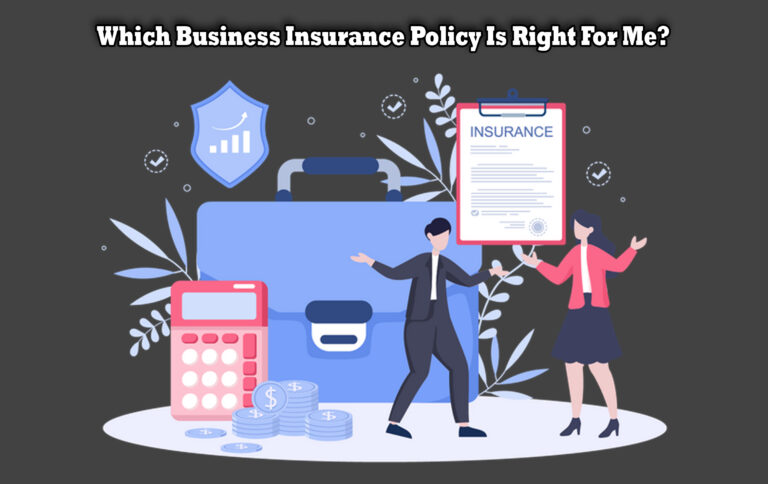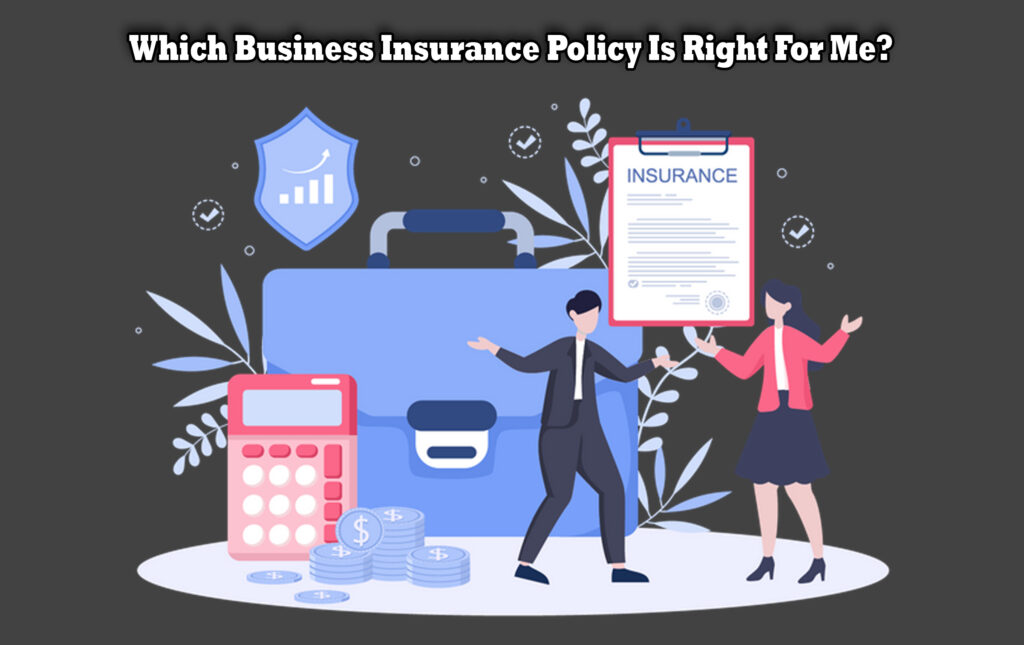
Which business insurance policy is the right fit for me? Whether it’s a small startup or a growing enterprise, growing a business comes with its share of risks.

From property damage and employee injuries to lawsuits and customer complaints, unexpected events can severely impact your operations and finances.
This is where business insurance becomes essential. It acts as a protective shield that can help cover losses, sustain operations, and keep your business on track even in the face of challenges.
However, with so many types of business insurance policies available, choosing the right one can feel overwhelming. Furthermore, the ideal policy depends on the nature of your business, your industry, number of employees, business assets, and your tolerance for risk.
General Liability Insurance
General Liability Insurance is often considered the foundation of any business insurance plan. It protects your business from a wide range of third-party claims that could arise during everyday operations.
Furthermore, it is ideal for businesses that interact with customers face-to-face, handle client property, or have a physical location where someone might get injured. Even if you operate remotely or digitally, liability claims can still occur from things like advertising errors or defamation.
What’s more, the coverage typically includes:
- Bodily injury (e.g., a customer slips and falls at your shop)
- Property damage caused to a third party
- Legal defense and court costs
- Personal and advertising injury (e.g., libel or slander)
This policy is a must-have for nearly every business and often required when signing commercial leases or contracts.
Commercial Property Insurance
Whether you own or lease your workspace, Commercial Property Insurance covers your physical assets from events like fire, theft, and natural disasters. It’s especially important for brick-and-mortar businesses and those with high-value equipment. Their policy also covers:
- The building or office space
- Furniture and signage
- Equipment and machinery
- Inventory and stock
- Lost income due to property damage (via Business Interruption coverage)
For businesses that rely heavily on tools, computers, or physical goods, property insurance ensures you can recover quickly after a damaging event.
Business Owner’s Policy (BOP)
A Business Owner’s Policy bundles multiple essential policies into one package, like the General Liability and Commercial Property Insurance. What’s more, it is often more affordable than purchasing each separately.
A BOP is well-suited for small to medium-sized businesses in low-risk industries such as retail stores, restaurants, and small offices. It offers simplicity and savings, making it a popular choice among entrepreneurs. Some of the coverage included in this policy:
- General liability coverage
- Commercial property insurance
- Business interruption coverage
- Optional add-ons (e.g., cyber liability, crime coverage)
If you want broad protection in a single, easy-to-manage plan, a BOP could be the right fit for you.
Cyber Liability Insurance
With increasing dependence on digital tools and online data, cyber attacks have become a major threat. Cyber Liability Insurance helps cover costs related to data breaches, hacking, and other cyber incidents. This coverage includes:
- Legal fees
- Notification costs to customers
- Data recovery
- Ransomware payments
- PR and crisis management
Any business that stores customer data, processes payments online, or uses a website should consider this increasingly vital policy.
Professional Liability Insurance (Errors & Omissions)
If your business is the type that provides advice, expertise, or professional services, then the Professional liability insurance, also known as Errors and Omissions (E&O), is needed.
This policy protects you against lawsuits claiming negligence, mistakes, or failure to deliver promised services. Even if the claim is baseless, legal defense costs can be high. What’s more, the industries that benefit from this insurance include:
- Consultants
- Accountants
- Lawyers
- Marketing agencies
- IT professionals
- Architects
In an increasingly litigious world, this coverage is critical for protecting your reputation and finances.
Workers’ Compensation Insurance
If you have employees, Workers’ Compensation Insurance is often legally required. It covers medical expenses, rehabilitation, and lost wages if an employee is injured or becomes ill on the job. It covers:
- Injuries from slips, trips, and falls
- Work-related illnesses
- Repetitive strain injuries
- Employer liability if sued by an injured worker
Even if it’s not required in your state or country, offering this coverage demonstrates care for your employees and protects your business from large out-of-pocket expenses.
Frequently Asked Questions
How Do I Know Which Insurance Policies I Need?
You can start by evaluating the risks involved in your business. Also, you consider your industry, location, number of employees, and whether you interact with clients or own physical assets. Additionally, speaking to an insurance advisor can help you assess your needs.
Do I Need Insurance If I Work From Home?
Yes, you do. Home-based businesses may still face liability claims, property damage, or cyber risks. Hence, the homeowners insurance typically does not cover business-related losses, so separate coverage is important.
What If I Run A Business Without An Insurance Policy?
Operating without insurance exposes you to lawsuits, regulatory fines, and huge financial losses. Just one incident, like a customer injury or cyberattack, could be enough to bankrupt your business.